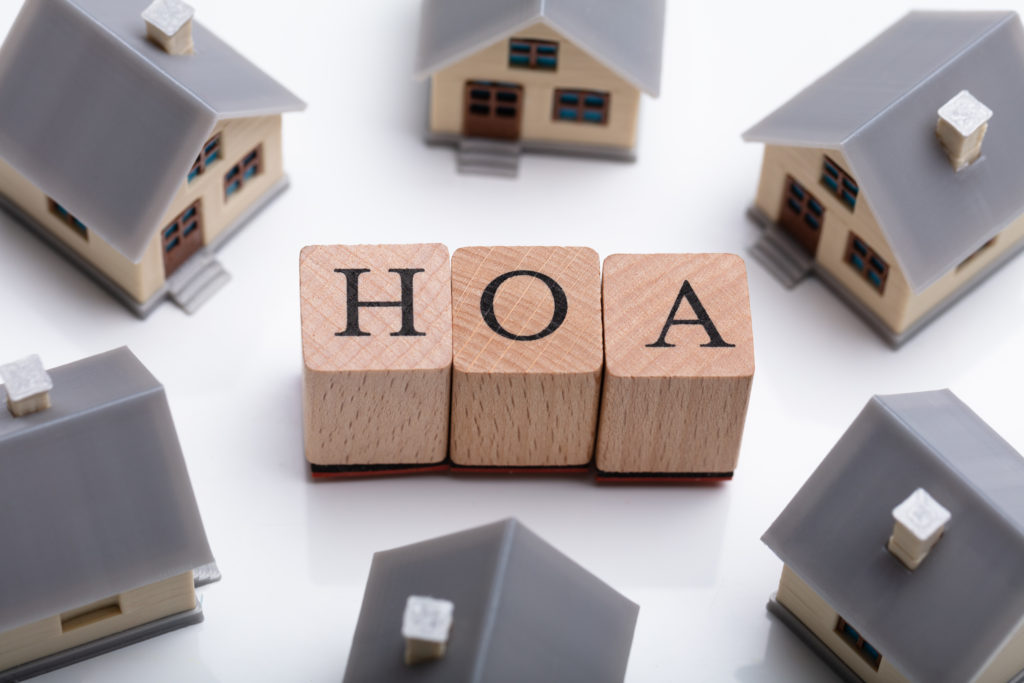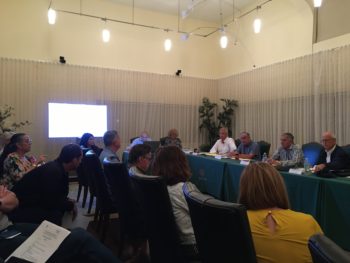Emboldened Residents Battle Entrenched Condo Boards
Annali HaywardNovember 4, 2019

HOAs on Key Biscayne are facing increasing scrutiny. (Adobe)
Contentious condominium board meetings are neither new nor rare in Florida. But while some Key Biscayne condo boards modernize, others are mired in conflict.
The gavel banged repeatedly at the Key Colony Homeowners’ Association board meeting last week, where several dozen disgruntled residents sought clarity over a proposed hike in fees.
But elsewhere on the Key, condo board coups have paved the way for greater transparency.
Unruly colony
Key Colony’s original 2020 budget proposed an overall increase of over $1 million, including large increases in the reserves for items that residents said were not supported by documentation, such as $100,000 for ‘contingency’ – a new addition this year. Residents were unhappy that previously-budgeted projects have not materialized, and that the HOA’s legal budget is both large and seemingly unregulated. (The HOA has spent $114,000 on legal costs and settlements in 2019 so far, against a budget of $10,000. $40,000 is proposed for 2020).
Defending the proposed budget, board member Joseph Abood said reserves had been depleted over the past few years.
The Wednesday meeting came two days after the finance committee’s second budget workshop, in which residents attempted to drill down into the bumped-up reserve funding – but came away confused.

Maria Bueno (far left) addresses the Key Colony HOA board, Oct. 30. (Key News_Annali Hayward)
“I am on the finance committee,” said resident Maria Bueno Wednesday, “and I do not know where this number came from.”
“It’s $80,” said Key Colony HOA president Tom Koch, referring to the proposed increase per unit per quarter. “Can you all handle $80?”
“I don’t think the $80 is the point, sir,” retorted resident Hammy Garzon.
Koch’s use of Roberts’ Rules of Order in conducting the meeting left residents feeling cut off or unheard. “I’m coming into this meeting relatively new,” said one, Fred Burman, “and I feel there’s a very confrontational atmosphere here.”
Board members did little to alleviate that, though Louisa Lincoln Conway, one of the members from Emerald Bay, called at one point for the board to “respect” the larger-than-usual number of residents asking to be heard.
Things took a turn for the worse as Abood suggested $4.5 million in revenues were unaccounted for between 2016 and 2019. Fellow member Matt Bramson was unsatisfied with Abood’s responses to his questioning.
“I don’t know how in good conscience you can vote for this now,” he said before casting his vote against the budget proposal. He was the lone no vote, as six other members voted to proceed to the next step: mailing out the proposed budget to owners, who then have 30 days to get together 15 percent of owners (some 177 residents) to suggest changes.
Greener grass
At 1,179 units, Key Colony is the largest complex on Key Biscayne. But a few blocks south, the 800-strong Ocean Club operates a mini electoral college. Buildings within the complex elect a Voter Representative every two years, who in turn choose the seven board members of the overall Ocean Club homeowners’ association.
Lucia Marin, who is nearing the end of her two-year board term, said she will be running again, but that term limits should probably be considered.
The Ocean Club board offers three ways for residents to catch up on meetings they can’t attend: minutes; voter representatives’ minutes, and video of the meeting posted on their website. Marin says the board got close to a deal to livestream meetings recently.
“That would have been ideal,” she said. The issue of recording and sharing meetings prompted an unpleasant fracas earlier this year at Key Colony.
“Transparency is critical,” said Marin, “otherwise members will question decisions and stop participating.”
Elsewhere, the Ambassador building could be a microcosm of Key Colony (which has four buildings). Alexa Holloway, a board member for just under a year, was one of those who replaced four of five serving board members after a “shake up” at the Crandon Boulevard condo.
“We are trying to be transparent,” said Holloway. “We come to meetings with data, prepared to explain and to offer potential solutions.”
Further complicating things for Key Colony residents is their HOA’s reactions to conceptual plans for a new Key Biscayne library. Legalities aside, it was not lost on residents Wednesday that HOA vice president Antonio Camejo – both at the meeting and during public comments at the Oct. 29 Village Council meeting – is asking for transparency and consultation from the Village and Miami-Dade County. Yet the electronic voting system the HOA signed up for in June, which would facilitate the gathering of resident opinion on the matter, has not been deployed.
A group of Key Colony residents will meet Monday night to come up with an action plan to address both the budget and the wider issues at stake for the island’s most populous residence.
According to the latest available data from the Community Associations Institute, around 10 million people live in Florida’s 348,000 condos.


